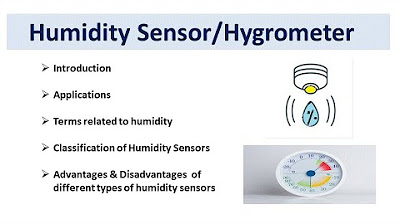How Singapore Farms Use Artificial Intelligence
Summary
TLDRThis video discusses the role of advanced sensors in agriculture and aquaculture, focusing on how data such as temperature, humidity, light, and CO2 levels can optimize crop and animal health. The speaker highlights the challenges of operating in Singapore due to high costs and limited resources. Despite these hurdles, local startups are contributing to global food security by exporting innovative agricultural technologies. The vision is to create software that integrates various data sources to offer a clearer picture of agricultural conditions and improve operational efficiency.
Takeaways
- 😀 The use of sensors in agriculture helps monitor key environmental factors like temperature, humidity, light, CO2 levels, fertilizer, EC, and pH, optimizing conditions for vegetable growth.
- 😀 Data from sensors is continuously gathered and analyzed to provide valuable insights into farming operations, enhancing decision-making for operators.
- 😀 A software program is being developed to integrate data from different sources, providing a more comprehensive view of farming and aquaculture conditions, such as water quality and animal health.
- 😀 One of the biggest challenges for agriculture and aquaculture in Singapore is the high cost of production, driven by limited local resources and high operational costs.
- 😀 Singapore's agricultural industry has not yet reached full production capacity, which has hindered recovery of investment costs for operators and farmers.
- 😀 Sourcing materials, such as pipes for infrastructure, can be difficult in Singapore due to limited availability, adding to the cost challenges faced by farmers.
- 😀 Singapore’s agri-tech startups are exporting their innovative technologies and equipment to international markets, contributing to the global agri-food tech ecosystem.
- 😀 Singapore is ranked number one in the global food security index, positioning the country as a leader in ensuring sustainable food production and security.
- 😀 Despite high costs, Singapore’s advancements in food technology help enhance global food safety, benefiting international markets.
- 😀 The integration of advanced technologies into the agricultural process is seen as a potential solution to overcome operational inefficiencies and help meet global food demand.
- 😀 The ongoing development of agri-tech solutions in Singapore is paving the way for better resource management and more efficient farming and aquaculture practices.
Q & A
What role do sensors play in the facility described in the transcript?
-Sensors in the facility continuously monitor environmental factors such as temperature, humidity, light levels, CO2 levels, fertilizer concentration, EC (electrical conductivity), and pH. This data is collected 24/7 to help optimize the growing conditions for vegetables.
What is the purpose of the software being developed in the facility?
-The software being developed aims to integrate data from different sources, such as water quality and animal health information, to provide a comprehensive view of the agricultural conditions. This helps operators and farmers make informed decisions based on a better understanding of their operations.
Why hasn't the business recovered its costs yet?
-The business has not yet recovered its costs primarily because it has not reached full production capacity. Additionally, operating costs in Singapore are significantly higher compared to other regions, and the agricultural and aquaculture sectors face limited access to resources.
What challenge is faced in sourcing parts for the facility in Singapore?
-A key challenge in Singapore is the difficulty of sourcing certain parts locally. For example, if a part like a pipe breaks, it may be challenging to find an immediate replacement, as some items are not readily available in the country.
How is Singapore's agricultural sector contributing to the global market?
-Singapore's agricultural sector is exporting agri-food technology and equipment overseas, with startups in the agri-food tech space leading the way. This contributes to the global market by offering innovative solutions developed in Singapore.
Why is Singapore ranked number one in the global food security index?
-Singapore is ranked number one in the global food security index due to its advanced agricultural practices, efficient food production systems, and the nation's commitment to ensuring a stable and secure food supply despite limited local resources.
What are some of the environmental parameters that are monitored by the sensors in the facility?
-The sensors monitor several environmental parameters, including temperature, humidity, light levels, CO2 levels, fertilizer concentration, electrical conductivity (EC), and pH, all of which are crucial for optimizing plant growth in the facility.
What are the limitations of the agricultural and aquaculture industries in Singapore?
-The limitations include high operational costs, especially when compared to other regions, and the scarcity of local resources. The industries also face challenges in sourcing materials and equipment, which can hinder their growth and operational efficiency.
How does the integration of data help farmers and operators in their decision-making?
-By integrating various data sources, such as water quality and animal health information, the software provides farmers and operators with a holistic view of their conditions. This enables them to make more informed and accurate decisions regarding the management of crops, livestock, and overall production.
What is the significance of the technology being exported by Singapore-based startups?
-The technology being exported by Singapore-based startups is significant because it represents innovative solutions to challenges in the agricultural and aquaculture industries. These technologies contribute to global food security and showcase Singapore's leadership in agri-tech.
Outlines

此内容仅限付费用户访问。 请升级后访问。
立即升级Mindmap

此内容仅限付费用户访问。 请升级后访问。
立即升级Keywords

此内容仅限付费用户访问。 请升级后访问。
立即升级Highlights

此内容仅限付费用户访问。 请升级后访问。
立即升级Transcripts

此内容仅限付费用户访问。 请升级后访问。
立即升级浏览更多相关视频

Agriculture Systems (Business Focus)

Humidity Sensors | Hygrometers | Humidity Parameters|Types of Humidity Sensors |Applications

TEKNOLOGI 4.0 DALAM PANEN

GCSE Biology - Factors Affecting the Rate of Photosynthesis | Limiting Factor Graphs

Sistem Pangan Dengan IOT Dan Blockchain

PutraMOOC | PRT2008M Topic 3 Agro-ecological System (Part III)
5.0 / 5 (0 votes)
